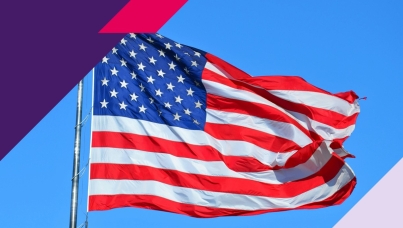Brands in the context of a changing America
The election today is bringing into relief our differences as a nation. One the one hand Americans are increasingly more progressive and tolerant on many social issues. However, there has been a reaction to this.
The American political landscape is fractured and shaped by these two opposing forces. Brands and companies can often be caught in the middle. Most Americans want to buy from brands that align with their values; but what are those values?
Below are five charts on the shifting values of American society, where that leaves brands, and what Tom Hanks can teach us here. Check out the video from Cliff to learn more.
1. Shifting values. It may be easy to forget given the general rhetoric, and the turn of anti-LGBTQ+ legislation and restrictions on abortion in the past few years, but, generally, Americans have become far more tolerant across many dimensions over the past few decades. For example, more are accepting of women in politics and LGBTQ+ rights. Plus, support for abortion access has dramatically increased compared to the 1970s and 1980s. A lot has changed.
2. Reaction to change. While some believe America has changed for the better, some don’t, and are defending the imagination of an America that once was. This comes out in politics in pointed ways. Take Ipsos’ measure for nativist sentiment. While Democrats and Republicans in the mid-1990s were roughly in agreement, over the past few decades they’ve diverged dramatically, with Democrats being far less nativist and Republicans becoming more nativist. We see this reaction not just in our research, but in the backlash against DEI and ESG as concepts.
3. High polarization. That divergence feeds this era of American society, which is defined by its high levels of polarization. That’s reflected in the disparate values and issues Americans care about. Look at the main issue data. For Democrats, political extremism is top of mind. For Republicans, it’s the economy and immigration. Two Americas: one red, one blue. Again, be careful where to step. America is not all the same.
4. Values-based consumer. How do these values come into play when Americans choose what to buy? Well, political identity is a minefield. It shapes and underpins other important identities in American life, along with people’s values. Other Ipsos research shows that most Americans tend to buy brands that reflect their personal values. But, what do those values mean? Well, as the data shows, it means very different things to different people. Values are in the eye of the beholder.
5. Brands can make a difference. Brands are one of the few reliable messengers in today’s polarized world. They are seen more favorably than politicians and the press, even Tom Hanks! This puts them in a more advantageous spot when it comes to being a messenger on social issues. But a cautionary tale: actor Tom Hanks’ forays into politics have significantly affected his favorability among the American public. Favorability is hard won and easily lost, especially in these polarized times. Repeat: tread lightly.
It’s clear that American society has become far more tolerant across many issues. The America of today is not that of yesteryear. But that has been met by a backlash from Americans yearning for a memory of what America once was. This is reflected in our politics today. The rise of Trump is but a symptom of this.
Recent history is littered with examples of brands whose efforts to promote values have fallen flat. Yes, it’s important to tread lightly in today’s highly polarized society. But also know that Americans trust brands over other messengers, like politicians or the press, making them uniquely positioned to be a voice of change. Most Americans want to buy from brands that align with their values. In this highly polarized landscape, which is amplified by a tense election, what do these values mean? That’s where the rubber meets the road.



